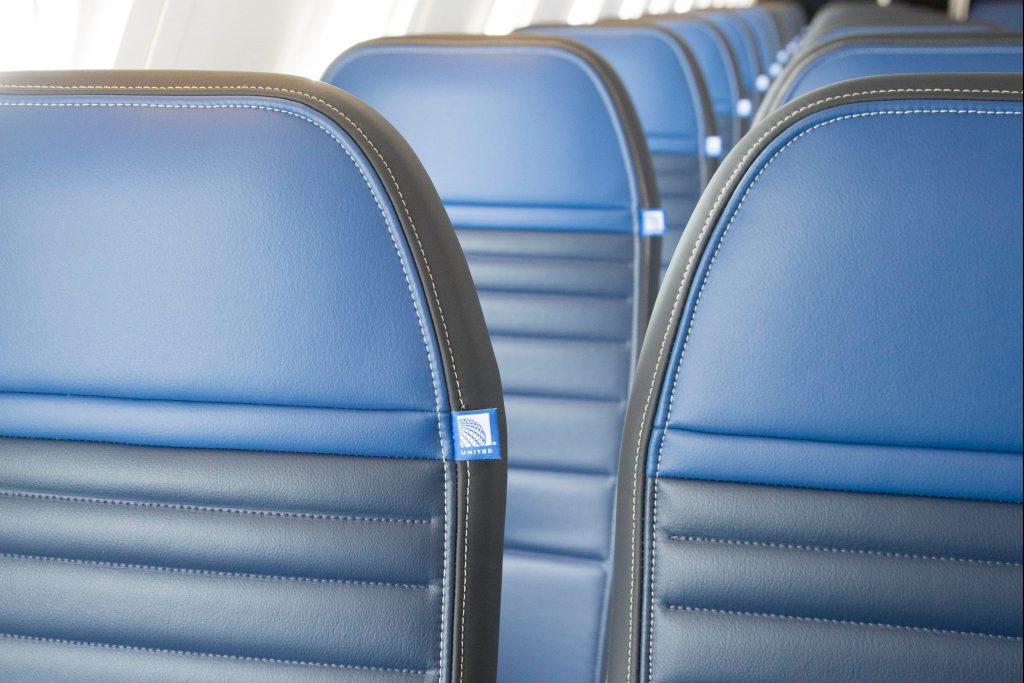Skift Take
Don't expect United Airlines to file for bankruptcy on Scott Kirby's watch. The company's new CEO has some big opinions on the topic.
At two previous companies, new United Airlines CEO Scott Kirby developed a reputation for bluntness, often favoring honest answers over diplomatic ones. On Thursday, speaking at his first public forum since taking over last week from Oscar Munoz, Kirby showed he wouldn’t drop the act just because he now leads a Fortune 100 company.
In a 50-minute discussion at the Bernstein 36th Annual Strategic Decisions Conference, Kirby shared his opinions on several issues he’s confronting, including onboard safety, a lack of demand, and mounting debt.
Here are some of the highlights.
No Bankruptcy Filing
The U.S. bankruptcy process permits companies to reorganize and drop their most onerous debts and labor contracts without materially changing their models. In some other countries, including in Europe, an airline that can’t pay its debts often goes out of business, forever.
United capitalized on U.S. bankruptcy law in 2002, reorganizing ahead of its merger with Continental Airlines, but Kirby told analysts he has no interest in filing again, except in the most dire circumstances.
He said he does not like even being asked the question.
“I’ll try to be calm, since I’m on video,” he said. “To me, it’s like the dumbest question possible. We are not going to file for bankruptcy. It would be the absolute last thing to do.”
Bankruptcy could allow United to get out of aircraft leases and labor contracts. But Kirby said it is not worth the costs.
“I can’t imagine why people think that’s a good business strategy,” Kirby said. “People ask me, ‘Is that the right way to restructure the business?’ I don’t think that at all. Zero percent. No chance. It’s worse for shareholders, for creditors, for employees. It’s worse for every constituent that we have.”
Middle Seats
Several U.S. airlines, including Delta Air Lines and JetBlue Airways, have committed to blocking middle seats until at least July to promote social distancing on aircraft.
At one point, United suggested it would join, but more recently backed away from the promise. Instead, it is trying not to assign middle seats on flights that are not full.
If a flight is booked at more than 70 percent, United is trying to contact customers to tell them it cannot guarantee distancing, and is allowing them to change flights. (Only about 1 percent of eligible customers are taking United’s offer, Kirby said.)
At the conference, Kirby said publicly what other airline executives know but rarely say — it is impossible to social distance on an airplane.
“I’ll try to be careful here,” he said. “You can’t be six feet apart on an airplane, middle seat or not. … What makes an airplane safe is HEPA air filters recirculating the air every two to three minutes, wearing a mask on board the airplane, and cleaning the airplane.”
Low-Point Reached
Several airlines executives have shared that their airlines hit the low point for revenue in April, with business picking up since then. Most executives try to spin that as a positive, but Kirby was more blunt, noting there was nowhere to go but up.
“It’s just mathematical,” he said. “As more time goes by, there’s fewer bookings to be canceled.”
Despite the quip, Kirby said business is improving. On Wednesday, United carried almost 50,000 passengers, up from fewer than 10,000 on two days in mid-April, though far fewer than the airline should be flying this time of year.
“We have long way to go,” he said. “It should be over a half a million. But it’s certainly headed in the right direction.”
No New Airplanes
After the financial recession, many U.S. airlines renewed their fleets, adding new airplanes, often with improved amenities. But that era is now over, Kirby said.
“Beyond the airplanes that we’re already kind of locked in on, I think it’s going to be a while before we’re taking new deliveries,” he said.
In the recent past, United might replace 15-year-old airplanes with newer models, using parts from retired jets for other aircraft. But that’s no longer the prudent financial move, he said.
“The less risky financial decision is to keep the older airplanes,” he said. “I view my job as chief risk manager, particularly as we go through a crisis. That just changes your perspective on new aircraft.”
United is the only one of the big three global U.S. carriers that has not retired a fleet type during the pandemic. It may, but it is too early, Kirby said. He said he prefers to watch to see how demand recovers.
“There’s no upside to doing it today versus collecting some more information and collecting more data, and we can make a better decision, a month from now, or two months from now, or four months from now,” he said.
Domestic Versus International
It has become conventional wisdom the U.S. domestic market will recover faster than long-haul international. Given the restrictions on transcontinental flights, that’s likely true.
But in recent weeks, United’s international system has been performing at least as well as the domestic business, Kirby said, as the airline has capitalized on robust cargo demand.
On Wednesday, he said United flew 48 widebody cargo-only flights to long-haul destinations.
“My guess is that if we ran a P&L [profit and loss statement] for our international versus domestic, international is a better P&L than domestic, which is counterintuitive to what everyone thinks,” he said.
The Daily Newsletter
Our daily coverage of the global travel industry. Written by editors and analysts from across Skift’s brands.
Have a confidential tip for Skift? Get in touch
Tags: coronavirus, covid-19, united airlines
Photo credit: United Airlines is not blocking seats on any airplanes to promote distancing. Pictured is a United Express CRJ700. United Airlines
